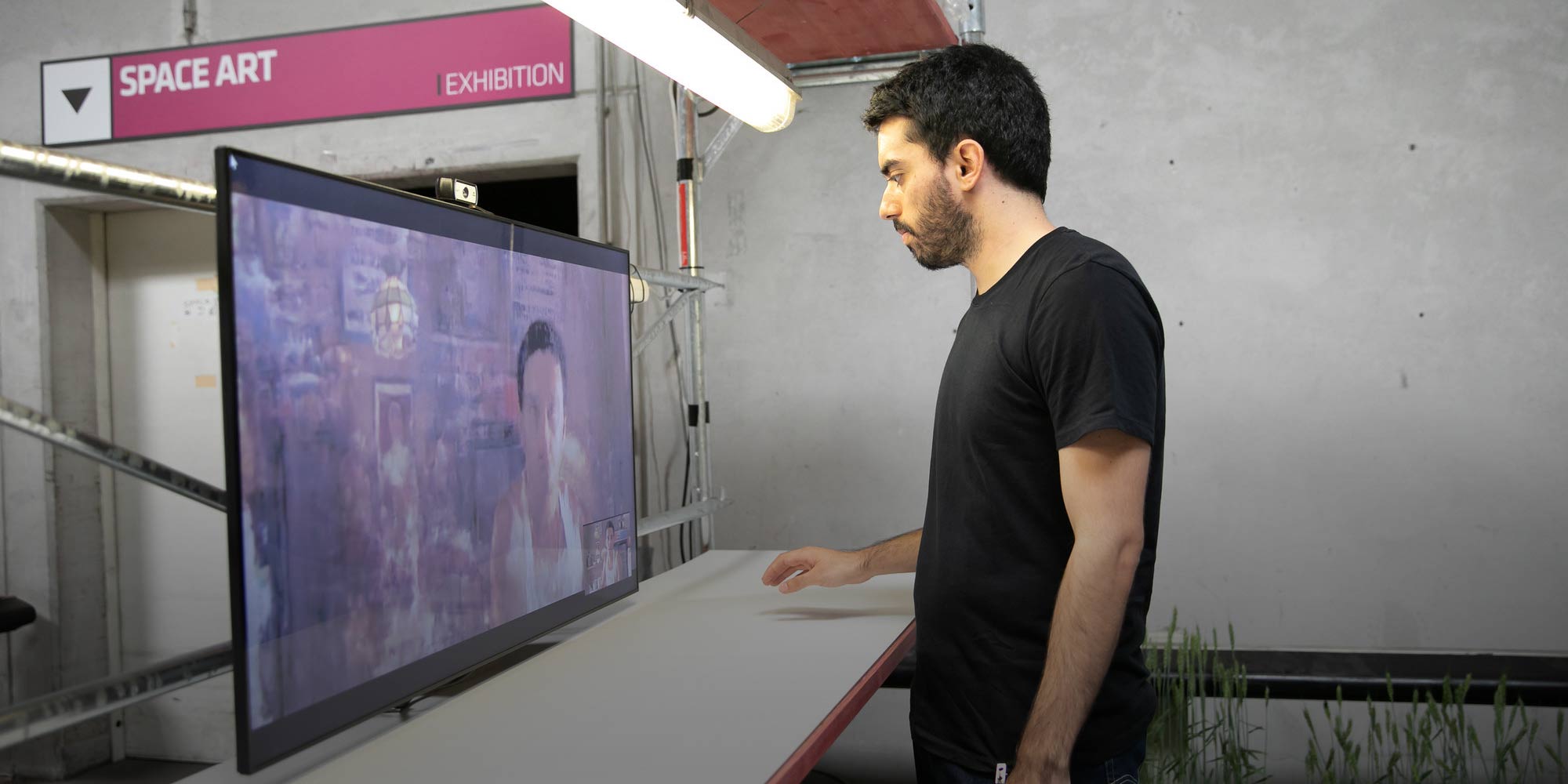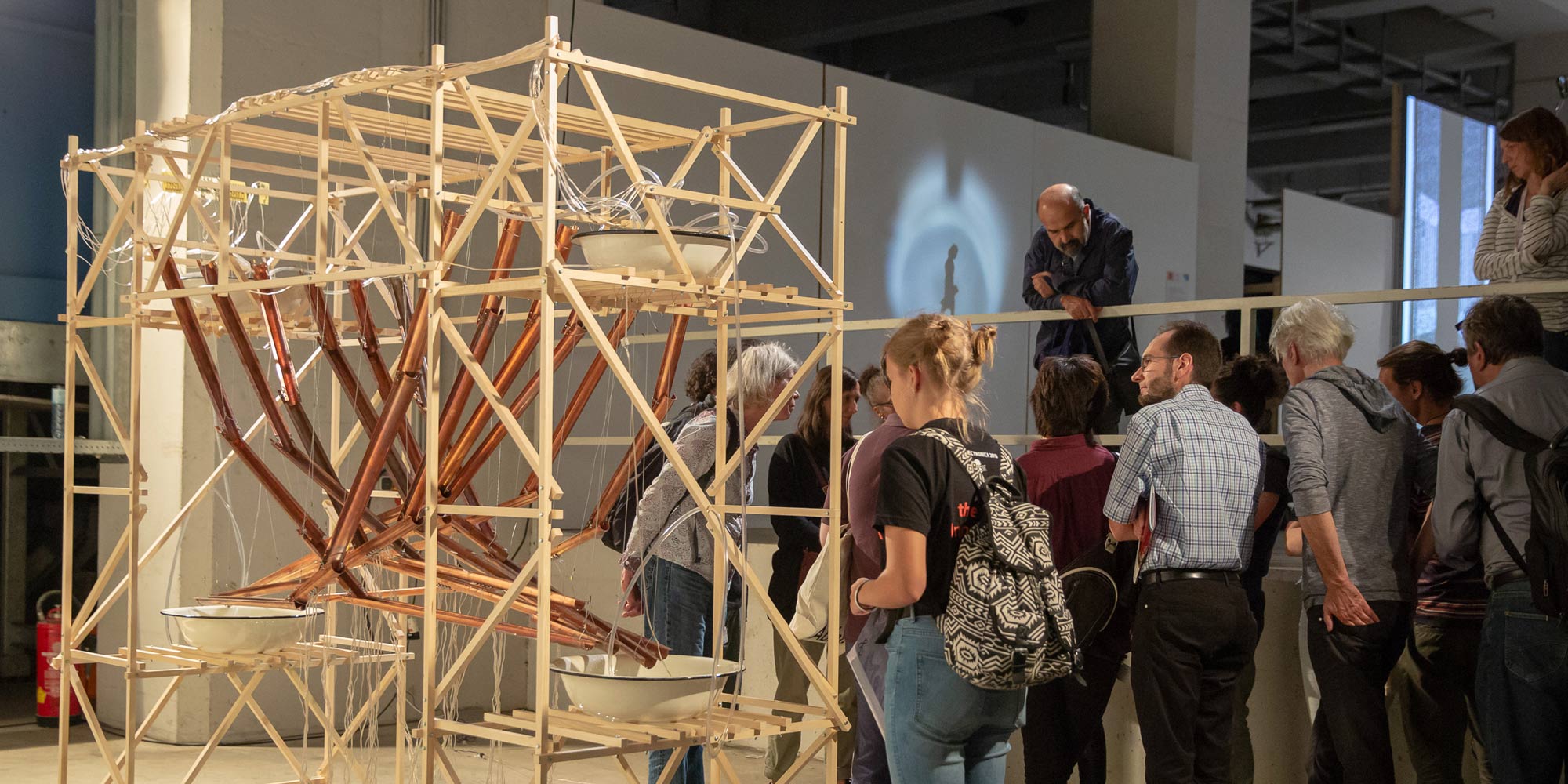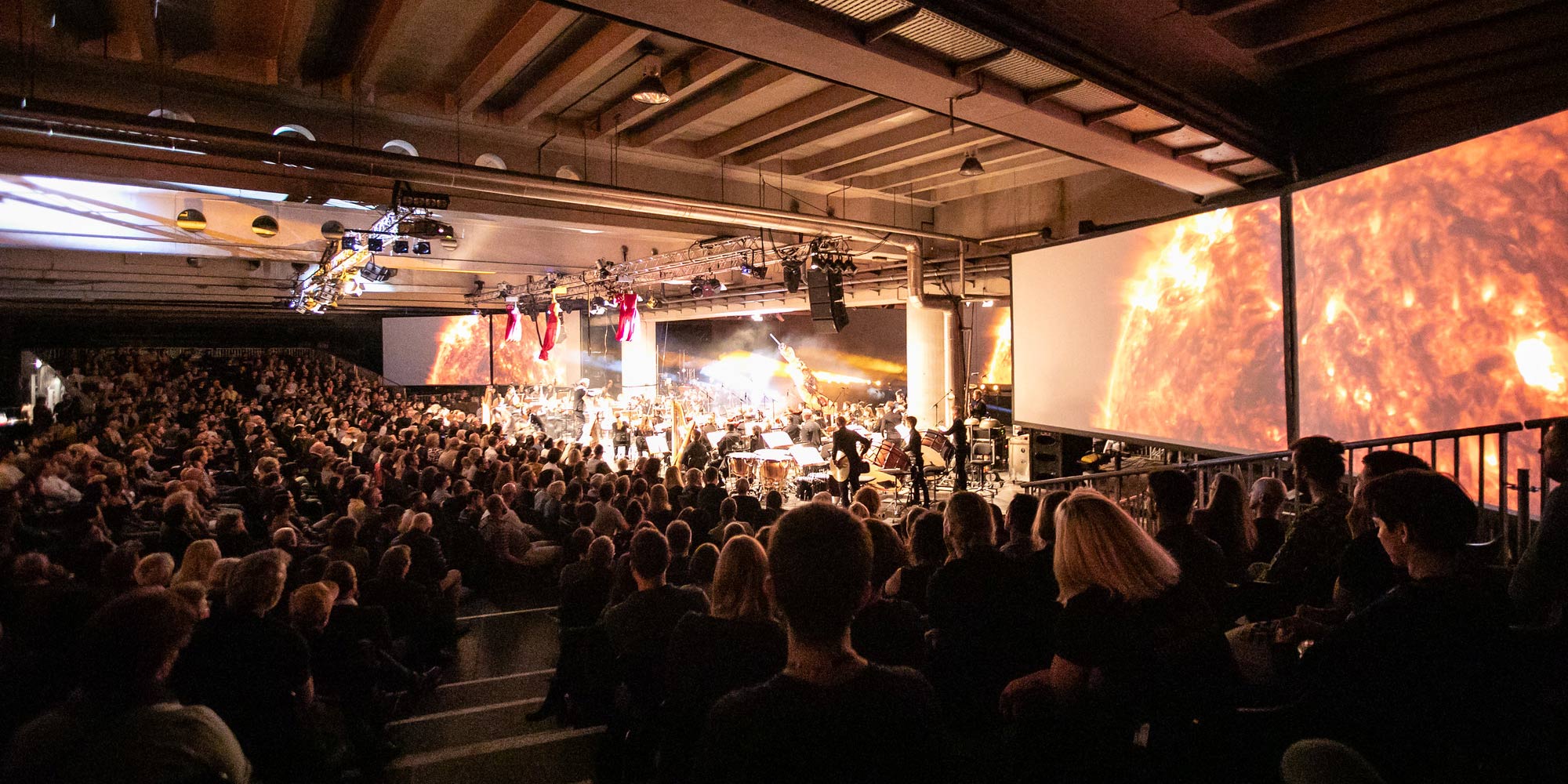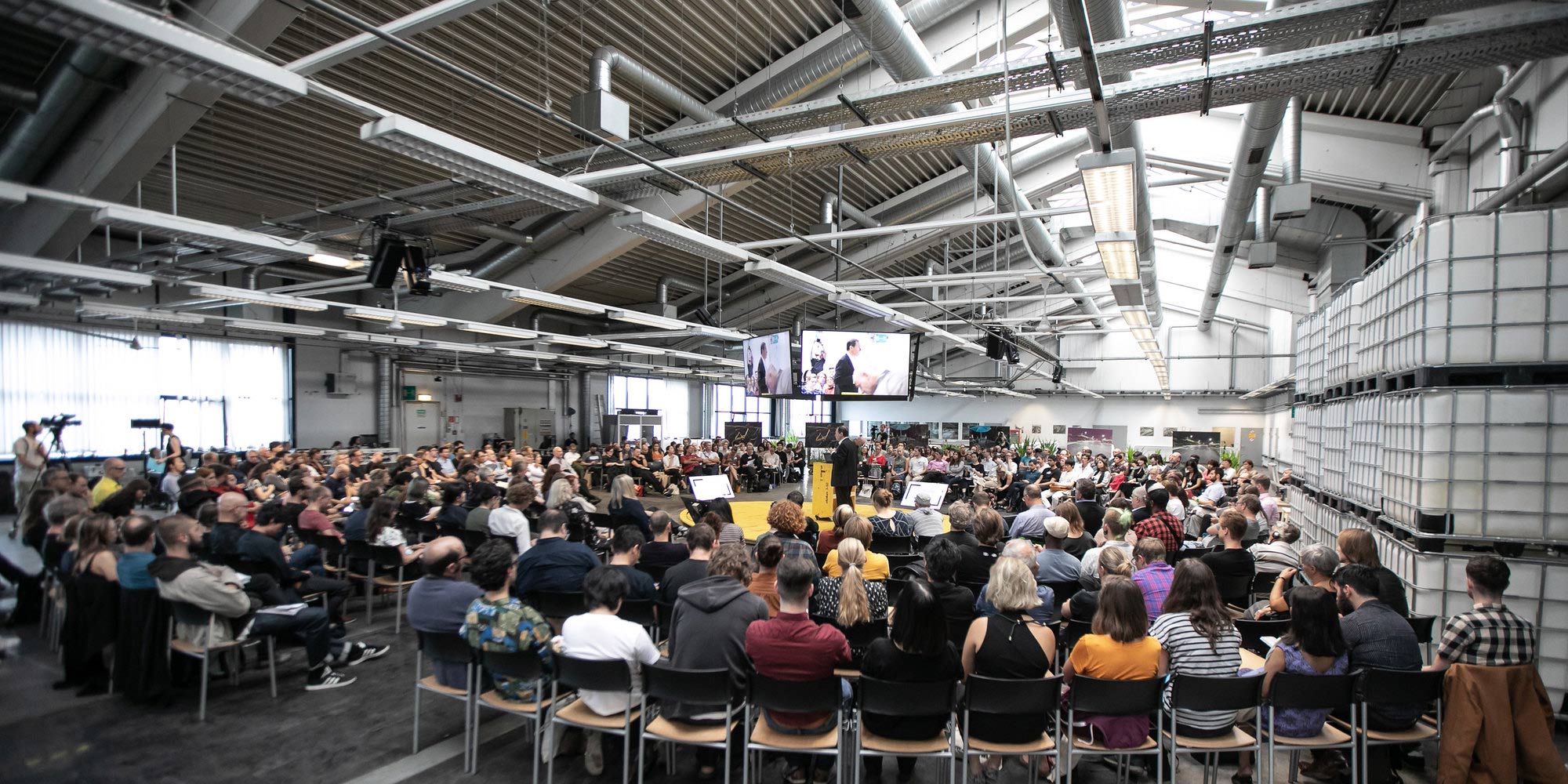Based on the successful launch of the cooperation, the Ministerio de las Culturas, las Artes y el Patrimonio and the Ministerio de Relaciones Exteriores | Gobierno de Chile and Ars Electronica are collaborating again to issue a second call for submission, asking artists, scientists, designers, researchers, entrepreneurs and social activists from Chile or with a Chilean background to participate in this year’s Ars Electronica Festival 2019.
In 2018, in the first-ever cooperative effort they called upon Chilean artists to submit creative projects of all sorts to be exhibited at the 2018 Ars Electronica Festival. Five projects were chosen and have been showcased at the festival from 6-10 September 2018. Interviews with the artists are available at the Ars Electronica Blog.
The Ars Electronica Festival – an international Festival for Art, Technology and Society – was initiated in 1979 and focuses on electronic art and media theory. For more than three decades now, this world-renowned event has provided an annual setting for artistic and scientific encounters with social and cultural phenomena that are the upshot of technological change. In Ars Electronica’s inimitable fashion, elaborations in the form of symposia, exhibits, performances and interventions will proliferate beyond the confines of conference halls and exhibition spaces, and take them out into the public sphere and throughout the cityscape.
In total, 105,000+ visitors in 5 days joined more than 614 individual events featuring 1,357 artists, scientists and activists from 54 countries. 402 media outlet representatives from 40 countries were accredited to Ars Electronica 2018.
We are happy to introduce you this year’s Festival theme
Out of the Box – The Midlife Crisis of the Digital Revolution
Since 1979, Ars Electronica has followed, anticipated and analyzed the digital revolution and its origins, its successes, even its follies. As a festival for art, technology and society, the cultural and social significance of new technical and scientific developments has always been at its forefront. In 2019, Ars Electronica celebrates its 40th anniversary and, as always, looks to the future. In keeping with its title “Out of the Box – the Midlife Crisis of the Digital Revolution,” the festival embarks on an expedition to artistically and scientifically survey our modern world and its techno-economic influences, asking questions about our future prospects and options for action.
“Out of the Box” has several very different meanings. On the one hand, it refers to ready-made products that can be used immediately. This is exactly what we see offered to us these days, in the form of consumption- and entertainment-oriented devices and the digital worlds of social media. We line up before opulent glass temples to purchase unnecessarily expensive devices which we can then only use as the company that brought them to market sees fit. We can’t even change the battery ourselves. They have also stripped us of the right to say how and by whom all the data can be used, all the information that is generated as soon as we begin to use these devices. What started out as a dream of technology that is easy for everyone to use has long since become the nightmare of a digital leash, for which we also pay a hefty price. As is so often the case, economic success causes a decline in creativity and innovation. New and useful features haven’t been coming “out of the box” for a long time – just the same old things in different packaging.
This very sobering “out of the box” of the economic sphere stands in contrast to the charismatic icons of the startup and innovation world. Here “out of the box” stands for that which is new, that which disrupts. It is about new paths and thinking outside of every convention. It is about nothing less than reinventing the world – or at least reinventing profit-making products and services…
But “Out of the Box” also puts us in mind of Pandora’s proverbial box. A thought that we encounter more and more frequently in light of the many current problems of our high-tech world. In any case, no matter which of these readings we prefer, we must all get “Out of our Boxes”. We must get out from cover, out of our comfort zones, our bubbles, our ignorance. We must get out of the mistaken belief that we can avoid responsibility for shaping the future.
40 years of digital revolution, but we’ve only just begun
When Ars Electronica was conceived and brought to life in Linz at the end of the 1970s, the digital revolution already had a technological scope to be reckoned with, and yet it was largely unknown. Just 10 years previous, four computers at various locations in the western United States had for the first time been interconnected to form a network. This was completely overshadowed by the spectacular, all-engrossing Apollo space program.
But in 1978 the Apple II and its brethren became the first affordable and usable desktop computers on the market. In 1981 IBM dubbed its new model “Personal Computer,” PC for short. This “personalization of computers” marked the beginning of a new, momentous era of digitalization that emerged from mainframe-heavy datacenters and research laboratories into our world and our everyday lives.
Then, in 1989, ten years after the first Ars Electronica, Tim Berners-Lee and Robert Cailliau developed and made freely available the foundations for the World Wide Web, thus unleashing the greatest technological avalanche of all time. One might call the current developments in this area a “socialization of computers,” which has to date connected more than 4.5 billion people across the world to the Internet.
During this period, the phenomenon of artificial intelligence led a comparatively much less glamorous existence. Apart from short periods of hype and the always captivating frisson of dystopian science fiction novels and films, AI consistently failed to fulfill its promise. Now this has suddenly changed. Exponentially increased computing power and the availability of mass data have meant great success above all for machine learning, finally making AI the next game changer. While to date digitalization has only applied to the world of industry and its systems, something completely new is now dawning: the digitalization of thinking and decision-making. And although we are still a long way from achieving an independent, a strong or a general artificial intelligence, we have begun to grant digital systems a new independence. It seems that our next step will lead us from automation into autonomy.
Once again, we find ourselves awestruck and also fearful; we ask ourselves what could come of all this. What we have hopefully learned in the last 40 years is that we dare not leave these developments to the technology companies alone. We must use the occasion of the digital revolution’s current midlife crisis to reformulate our questions about the future, and to concentrate not only on what is technologically possible, but on what we wish to accomplish with technology in the first place. And on what we don’t.
The Ars Electronica Festival – an international Festival for Art, Technology and Society – was initiated in 1979 and focuses on electronic art and media theory. For more than three decades now, this world-renowned event has provided an annual setting for artistic and scientific encounters with social and cultural phenomena that are the upshot of technological change. In Ars Electronica’s inimitable fashion, elaborations in the form of symposia, exhibits, performances and interventions will proliferate beyond the confines of conference halls and exhibition spaces, and take them out into the public sphere and throughout the cityscape.
We are sure that a vivid and dynamic exchange of ideas, visions and thoughts will emerge from the highly interesting, as well as controversial group of people who will come to Linz in September to present their work and ideas at the festival.
OPEN CALL
The competition is open to Chilean artists living in Chile or abroad to propose innovative projects at the nexus of art, science and technology. The wide range of disciplines that can be considered include interactive art, digital music and sound art, computer animation, film and visual effects, digital communities and social media, hybrid art, bio art, and digital design. The selected projects will be presented during the Ars Electronica Festival 2019. This call for submissions addresses especially exhibition artists, performance artists, educational artists and partners, and curators. This open call does not address theatres and large scale performative projects.
Projects will be selected in the following three categories:
1. Exhibition Participation
Become a part of the Ars Electronica Festival Exhibition and present your work in Linz, Austria.
The following details are requested for the application process (all documents must be in English):
- Curriculum Vitae
- Proposed Project for the Ars Electronica Festival, e.g. completed works or ongoing projects, (such as visual installations, sound performances, interactive videos, virtual reality, textiles, interactive objects, etc.) or projects at prototype stage (e.g., a prototype and a documentation video, research models and diagrams, photos of experimentation and an ethics form, etc.) – maximum 2 pages
- Tech-Rider specifying your technical as well as spatial needs
- Portfolio of your other work
All files have to be send through WeTransfer with a download link in your application. Only limited shipping to Austria can be provided therefore digital works, video art and live performance projects but also installations will be accepted. In case shipping is needed, please let us know the freight details (number of boxes, sizes and weight) as well as the location of the work.
2. Performance
During the Festival, Ars Electronica reclaims its slot as an epicentre of contemporary electronic music with international acts and performers in the fields of expanded electronic and digital music as well as sound art. The following details are requested for the application process (all documents must be in English):
- Curriculum Vitae
- Proposed Project for the Ars Electronica Festival, e.g. completed works or ongoing projects, (such sound performances, audio-visual installations, sonic sculptures, generative music, dj-sets, computer compositions, analogue and electro-acoustic methodologies, instruments, etc.) – maximum 2 pages
- Tech-Rider specifying your technical as well as spatial needs
- Portfolio of your other work
All files have to be send through WeTransfer with a download link in your application. This open call does not address large-scale theatre or dance performance projects.
3. Delegation visit
Ars Electronica offers a special programme designed for a delegation visit that includes:
- Full Festival Pass and access to the complete festival program
- Guided tours in various Festival locations
- Meetings with Ars Electronica experts
- Coordination with potential external experts from cultural as well as policy backgrounds to discuss the impact of Ars Electronica on the city and the cultural ecosystem in Linz (eg. experts from the universities, creative industries, etc.).
- Facilitation of contacts with international participants of the festival for the development of a personal professional agenda.
The call is open to Chilean professionals living in Chile or abroad, especially to curators, festival directors, professionals working in the new media sector.
The following details are requested for the application process (all documents must be in English):
- Curriculum Vitae
- Portfolio of developed projects / exhibitions
- Cover letter (max. 2 pages)
All files have to be send through WeTransfer with a download link in your application.
Successful applications will be awarded
- A presentation of their work during the Ars Electronica Festival 2019 in Linz, Austria
- PR of their work through our channels and a representation in the festival catalogue
- Festival Pass with access to all festival locations and programs
- Support regarding the set-up of the work and needed technical equipment
A committee of evaluators comprised of Ars Electronica members will examine the proposals during the first weeks of June 2019. The selected works will be announced immediately after the jury deliberations.
Support
The Ministerio de las Culturas, las Artes y el Patrimonio and the Ministerio de Relaciones Exteriores | Gobierno de Chile will support selected projects by Ars Electronica with ticket flight to Linz, Austria, accommodation and per diem allowance.
Timetable
- Applications Open: May 4, 2019
- Applications Close: May 31, 2019 – 23:55 CLST
- Successful Applicants notified by: Mid of June 2019
Submit now!
Please submit all documents via email to festival@ars.electronica.art!
Submit now!
Contact
If you have any questions or queries please contact: christl.baur@ars.electronica.art
Contact in Ministerio de las Culturas, las Artes y el Patrimonio | Gobierno de Chile: clara.szwarc@cultura.gob.cl
The open call is issued by Ars Electronica Linz GmbH & Co KG in collaboration with Ministerio de las Culturas, las Artes y el Patrimonio and Ministerio de Relaciones Exteriores | Gobierno de Chile.






